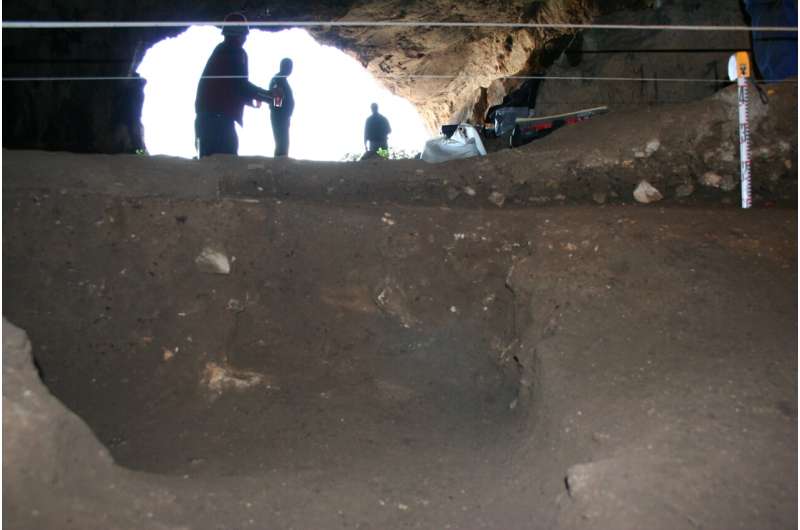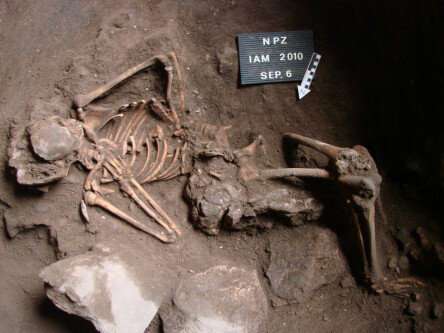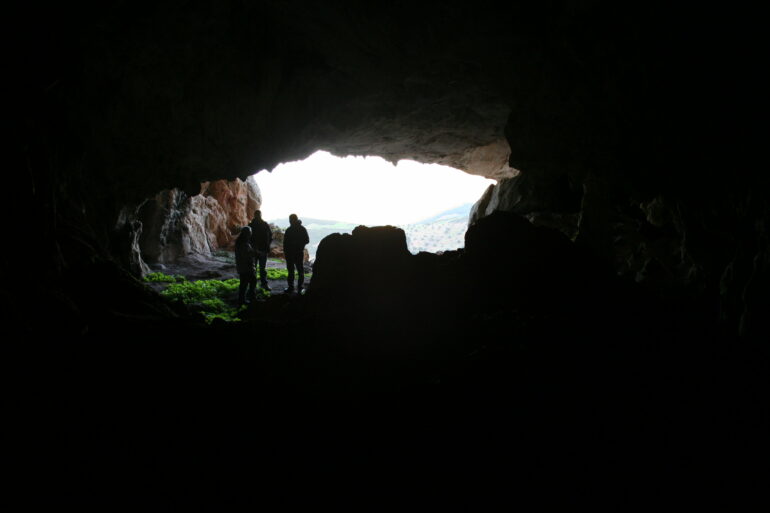A genomic analysis of ancient human remains from Morocco in northwest Africa revealed that food production was introduced by Neolithic European and Levantine migrants and then adopted by local groups. A research team from Sweden, Spain and Morocco present their results in Nature.
In northwestern Africa, lifestyle transitioned from foraging to farming some 7,400 years ago, but what sparked that change remained unclear. Previous studies support conflicting views: that migrant European Neolithic farmers brought the new way of life to North Africa, or that local hunter-gatherers adopted farming practices.
“We found a remarkable population continuity up until seven and a half thousand years ago in northwestern Africa, where a group of local foragers had been living—isolated—for at least 8,000 years, perhaps since much further back in time,” says Professor Mattias Jakobsson, Uppsala University, who led the study.
Then something happened.

Excavation at the site Kaf Taht el-Ghar (KTG). © Juan Carlos Vera
After being isolated for so long, northwestern Africa received two new ancestries within ca. 1000 years, one migration wave following the northern Mediterranean coast, and another, the southern.
“A foreign ancestry related to the first European Farmers is found in North Africa in the remains of the earliest Neolithic context around 7500 years ago,” says Dr. Luciana Simoes from Uppsala University, first author of the study, indicating that migrants from Europe introduced this new lifestyle.
“Inspired by their new neighbors, within a few hundred years, the local foragers started to change their way of life to farming and the two groups lived side by side for at least another century,” says Dr. Cristina Valdiosera from University of Burgos in Spain, who co-led the study.
“This phenomenon has not been seen in any other part of the world,” says Dr. Torsten Günther from Uppsala University
Around 6,300 years ago, a new genetic ancestry appeared in the human remains, likely as a consequence of migrants from the Levant arriving at the same time as pastoralism arrives in the region. Later, all three ancestries blend together during the Late Neolithic.

Human remains at the site Ifri n’Amr o’Moussa. © Youssef Bokbot
“I think it is great that the genomic data generated in this study confirms what the ceramic decoration was already pointing to: a unidirectional diffusion from the Iberian coast to the Tingitana Peninsula, around 7500 years ago,” says Dr. Rafael Martínez Sánches from the University of Córdoba, Spain
“Filling these key chronological gaps in the Maghreb proved crucial to better understand how the different subsistence strategies were acquired in this region,” says Dr. Youssef Bokbot from L’Institut National des Sciences de l’Archéologie et du Patrimoine désigné ci-dessous in Morocco.
More information:
Mattias Jakobsson, Northwest African Neolithic initiated by migrants from Iberia and Levant, Nature (2023). DOI: 10.1038/s41586-023-06166-6. www.nature.com/articles/s41586-023-06166-6
Provided by
Uppsala University
Citation:
Ancient genomes suggest farming in Africa was ignited by oversea-migrants from Iberia 7,400 years ago (2023, June 7)
